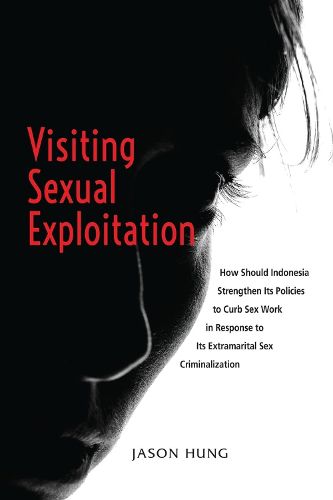Readings Newsletter
Become a Readings Member to make your shopping experience even easier.
Sign in or sign up for free!
You’re not far away from qualifying for FREE standard shipping within Australia
You’ve qualified for FREE standard shipping within Australia
The cart is loading…






This title is printed to order. This book may have been self-published. If so, we cannot guarantee the quality of the content. In the main most books will have gone through the editing process however some may not. We therefore suggest that you be aware of this before ordering this book. If in doubt check either the author or publisher’s details as we are unable to accept any returns unless they are faulty. Please contact us if you have any questions.
Similar to neighbouring Southeast Asian countries, Indonesia is, simultaneously, infamous for its prevailing sex tourism economy, sex industry and sex trafficking activities. On 6 December 2022, Indonesia's parliament passed the criminal code to criminalise extramarital sex. The anti-extramarital sex legalisation was established to help reinforce Indonesia's, following Islamic Law, stance of disallowing sexual behaviours beyond marital relationships. Those who engage in extramarital sex, per the criminal code, are sentenced to up to a year in prison.
This book responds to Indonesia's latest legislation that passed the criminal code of criminalising any act of extramarital sex. The formation of the arguments made in this book is based on the premise that, by criminalising extramarital sex, the Indonesian government aims to, in part, crack down on the local prostitution industry to minimise any act of, child or not, sexual exploitation, prostitution and sex trafficking. The book presents how cracking down on the local or regional (i.e., Southeast Asian) prostitution industry cannot be accomplished by simply taking legislative actions.
The book examines and analyses how sex work is socio-economically and institutionally constructed. This book presents the underlying unequal power of relations in Indonesian society that facilitates sexual exploitation, especially against disadvantaged children and women. The highlights of this book are the policymaking discourse on how local Indonesian policymakers should respond to such an unequal power of relations and the prevalence of sex work. The book, moreover, visits the anti-extramarital sex legislation in order to explain how the Indonesian government should endeavour to crack down on its domestic sex industry in order to uphold the values of human rights and lower the prevalence of the practice of commercial sex.
$9.00 standard shipping within Australia
FREE standard shipping within Australia for orders over $100.00
Express & International shipping calculated at checkout
This title is printed to order. This book may have been self-published. If so, we cannot guarantee the quality of the content. In the main most books will have gone through the editing process however some may not. We therefore suggest that you be aware of this before ordering this book. If in doubt check either the author or publisher’s details as we are unable to accept any returns unless they are faulty. Please contact us if you have any questions.
Similar to neighbouring Southeast Asian countries, Indonesia is, simultaneously, infamous for its prevailing sex tourism economy, sex industry and sex trafficking activities. On 6 December 2022, Indonesia's parliament passed the criminal code to criminalise extramarital sex. The anti-extramarital sex legalisation was established to help reinforce Indonesia's, following Islamic Law, stance of disallowing sexual behaviours beyond marital relationships. Those who engage in extramarital sex, per the criminal code, are sentenced to up to a year in prison.
This book responds to Indonesia's latest legislation that passed the criminal code of criminalising any act of extramarital sex. The formation of the arguments made in this book is based on the premise that, by criminalising extramarital sex, the Indonesian government aims to, in part, crack down on the local prostitution industry to minimise any act of, child or not, sexual exploitation, prostitution and sex trafficking. The book presents how cracking down on the local or regional (i.e., Southeast Asian) prostitution industry cannot be accomplished by simply taking legislative actions.
The book examines and analyses how sex work is socio-economically and institutionally constructed. This book presents the underlying unequal power of relations in Indonesian society that facilitates sexual exploitation, especially against disadvantaged children and women. The highlights of this book are the policymaking discourse on how local Indonesian policymakers should respond to such an unequal power of relations and the prevalence of sex work. The book, moreover, visits the anti-extramarital sex legislation in order to explain how the Indonesian government should endeavour to crack down on its domestic sex industry in order to uphold the values of human rights and lower the prevalence of the practice of commercial sex.